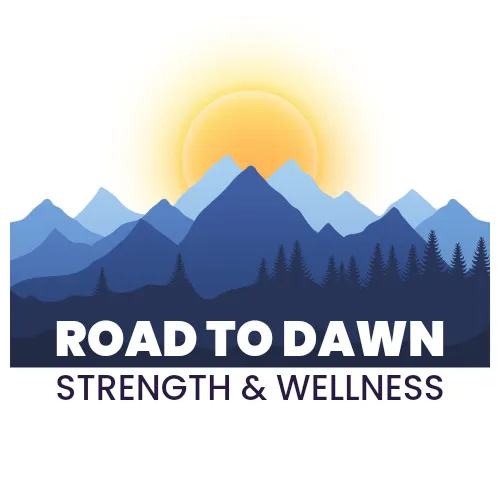The Overcoming Obstacles Blog

Pain is Frustrating, Isn't It?
“When you’re at the end of your rope, tie a knot and hold on.” – Franklin D. Roosevelt
Pain, Frustration, and Hopelessness: Why It Doesn’t Have to Stay That Way
Pain—it’s not just a physical experience. It seeps into every corner of your life. It affects your mood, your relationships, and your ability to do the things that make you feel alive. For athletes, especially those in demanding disciplines like obstacle course racing or hybrid events, pain can feel like a betrayal of your own body. One moment, you're scaling walls and conquering ropes, and the next, you're sidelined, wondering if you’ll ever get back to where you were.
If you’re in that place right now, I get it. As a physical therapist and athlete, I've been there, having injuries making me take a step back from training, which have made me feel frustrated, annoyed, and every other negative emotion in between. Pain can feel frustrating, unfair, and downright hopeless. But here’s the thing—it doesn’t have to stay that way.
Why Pain Feels So Overwhelming
When you’re in pain, it can feel like your world gets smaller. Activities you once took for granted—running, lifting, even just walking, standing or, hell, even sleeping—can become sources of discomfort or fear. Beyond the physical limitations, pain often brings a heavy emotional toll:
Frustration: “Why can’t I just push through this?” "When is this going to end?"
Fear: “What if this never gets better?” "What if I can't get back to running or racing?"
Isolation: “No one understands what I’m going through.”
Loss of Identity: “If I can’t race, who am I?” "What am I going to do?"
These feelings are valid. Pain changes your reality, and it’s okay to acknowledge how hard that is. But it’s also important to remember that pain is not a permanent sentence. It's never permanent. It’s a signal, not a dead end.
You Are Not Alone in This
One of the most insidious things about pain is how isolating it can feel. When you’re hurting, it’s easy to believe that no one else truly understands what you’re going through. But the truth is, many athletes, weekend warriors, and even everyday movers have faced similar struggles. And many have come out stronger on the other side.
Reaching out to a supportive community—whether it’s other athletes, a physical therapist, or trusted friends—can be a game-changer. Sharing your experience can:
Normalize what you’re feeling: Pain is a common part of growth and recovery, not a personal failure. It's something that sometimes is unavoidable.
Provide solutions: Others may have strategies or treatments that worked for them. Maybe it would work for you.
Restore hope: Seeing someone else’s comeback story can inspire your own.
Shifting from Hopeless to Empowered
The most powerful way to combat the hopelessness that pain brings is to take back control. While you can’t always snap your fingers and eliminate the pain, you can change how you respond to it. Here’s how:
1. Shift Your Perspective
Pain often feels like a barrier, but what if you reframed it as an opportunity? It’s a chance to learn about your body, address weaknesses, and build resilience. Your injury isn’t the end of your story; it’s just a plot twist.
2. Focus on What You Can Do
Even when pain limits certain activities, there’s almost always something you can do. If running hurts, try cycling or swimming. If lifting is off the table, work on mobility or flexibility. If you have a lower body injury, train upper body. If you can't handle two 45-pound plates on the squat rack, do one. Movement not only helps physically but also boosts your mental health.
You can always modify activities, even doing a certain movement that usually hurts at a lower intensity. Modifying one of: intensity, range of motion, duration, mode, tempo, weight, even the equipment that you are using.
3. Seek Expert Guidance
Pain is SUPER complex, and you shouldn’t have to navigate it alone. A skilled physical therapist or coach can help identify the root cause of your pain and create a plan to address it. The right guidance can turn uncertainty into actionable steps that puts you back on the road to recovery. The internet is a crazy, lawless thunderdome where there is usually more unhelpful advice than helpful. If you're reading this blog, I hope it's one of the helpful things.
4. Set Small, Achievable Goals
When you’re dealing with pain, thinking about the long road to recovery can feel overwhelming. Instead, focus on small victories. Maybe today’s goal is walking for 10 minutes without discomfort or completing a gentle stretching routine. Celebrate each win, and each win leads to bigger wins and add up over time.
5. Cultivate Patience and Self-Compassion
Healing takes time. It’s easy to get frustrated with your body, but remember that it’s working hard to repair itself. Treat yourself with the same kindness and patience you’d offer a friend.
A Brighter Future Awaits
Pain may feel all-consuming right now, but it doesn’t define you. You are more than your injury, more than your current limitations. With the right mindset, support, and strategies, you can move forward—not just back to where you were, but perhaps even stronger and wiser than before.
Remember, every obstacle you overcome adds to your story of resilience. And that’s a story worth telling.
So, what’s your next step? Whether it’s reaching out for help, setting a small goal, or simply reminding yourself that this is temporary, take that step today. Your future self will thank you.
If you want to start taking that next step, you don't have to walk the road together. Book a call and we'll chat: https://roadtodawnwellness.com/book-page-7052

QUICK LINKS
GET IN TOUCH
Home Base: Little Chute, WI
(516) 924-6062
Monday - Saturday : 8:00 - 5:00
© 2024 Road to Dawn Strength and Wellness